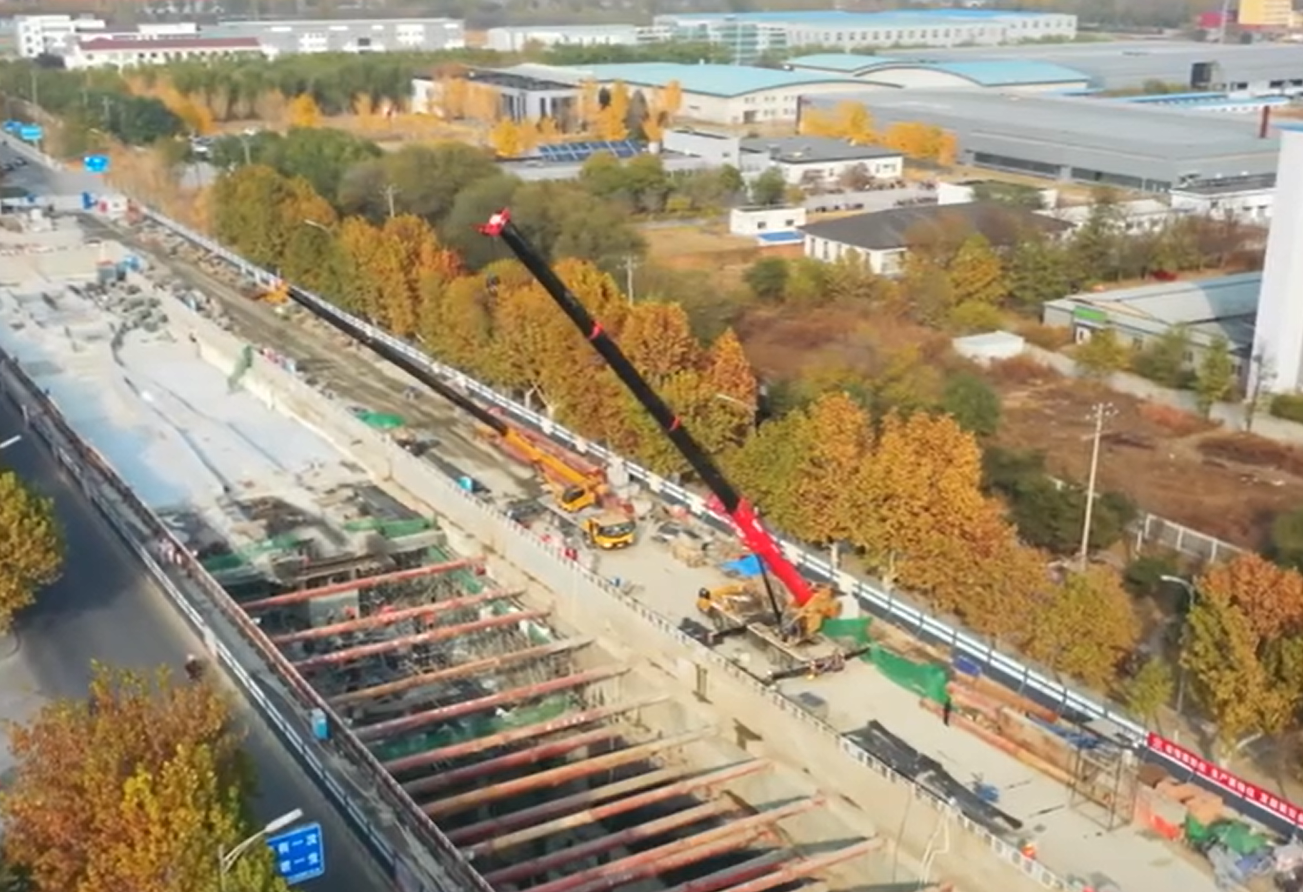
Wang Nan has been looking forward to the day he could take the subway to Beijing from his home in the neighboring Hebei province, as it would make commuting more convenient. The 40-year-old lives in Yanjiao town in Hebei's Sanhe city and works in Fengtai district, Beijing.
Every day, he travels to the capital in the morning and returns home after work, which is both time-consuming and draining. Fortunately, his wish will come true in three years' time, and Wang is already excited.
According to Beijing Daily, construction has begun on a subway line linking Beijing and Hebei after a feasibility study was recently approved by the Hebei Development and Reform Commission.
Subway Line 22, the Pinggu Line, will run for 81 kilometers and pass through three capital districts — Chaoyang, Tongzhou and Pinggu — as well as Sanhe city. There will be 16 stations in Beijing and five in Hebei, including one in Wang's home city of Yanjiao. The line is scheduled for operation by the end of 2025.
It will be the first interprovincial subway line in the Beijing-Tianjin-Hebei region and is expected to play a significant role in the integrated development of the region.
For Wang, the most significant impact will be on his commute.
"I will be able to save at least half an hour each way," he said.
At present, it takes him two hours by bus and then a subway to reach work. "It's exhausting. A large part of my day is spent on the road, which is a waste of time," he said. "When I get home, it's almost 10 at night."
Yanjiao is home to a large number of commuters like Wang, and there are up to 100,000 commuter visits per day between Yanjiao and Beijing at peak hours. Wang has worked in Beijing since 2007 and bought an apartment in Yanjiao in 2012 after renting in the capital for five years.
"After all these years, I've wasted so much time commuting," he said.
Once the subway is open, Wang said that because there are more subway trains than buses, he will be able to choose when to leave home.
"I'll be able to spend more time with my family and have more free time," he said, adding that he thinks the road to Beijing will become less congested because the subway will account for some of the commuters, so there will be less need for private cars on the road.
His wife drives to work in Tongzhou district every day, a journey that takes her about 40 minutes. "The line will also save time for commuters like her who have to drive to work," he said.
Editor: Song Lifang






